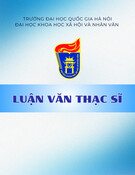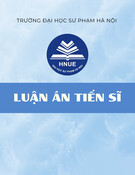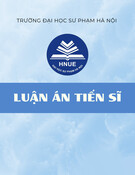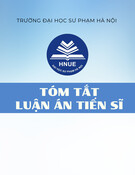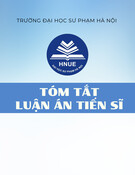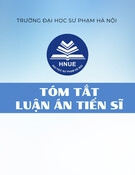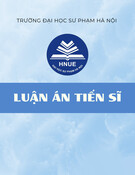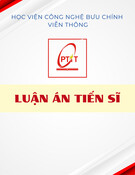
iii
ABSTRACT
The current study aims at helping fifth-grade students at a primary
school in Hanoi to improve their vocabulary learning through language
games. The school chosen for the study is Van Con Primary School in
Hanoi. The quantitative and qualitative methods are employed for the
study. Therefore, it is an attempt to investigate the teachers and students‟
attitudes towards using language games to teach vocabulary. The subjects
of the study are 05 English teachers and 106 fifth-grade students (03
classes) from Van Con Primary School in Hanoi. The data have been
gathered via survey questionnaires for both the teachers and students and
informal interviews only for the teachers. The first finding indicates the
majority of the teachers and students have positive attitudes when
applying language games to teach vocabulary. The second finding is that
most of the teachers have applied different types of sources of word
games in teaching vocabulary. However, there are some certain
limitations. They mainly use language games to present new words but
not really call interest from their students or motivate them in learning
new words. This means that they have not yet made advantage of its
potentials. The final finding shows some possible difficulties faced by the
teachers and the students when using language games to teach and learn
vocabulary.
Based on the findings, some recommendations, it is hopeful that
the study can be support to the teachers and students at Van Con Primary
School for reference to teach and learn vocabulary more effectively.






